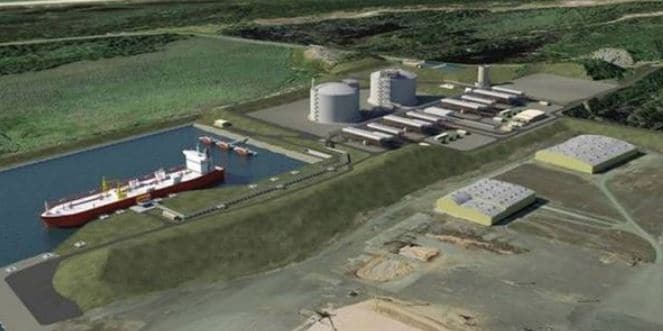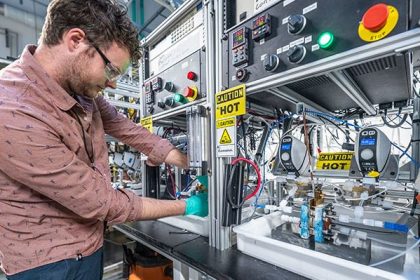Oregon Denies Permit to Controversial Natural Gas Project

The Oregon Department of Environmental Quality denied a key permit Monday to a controversial liquefied natural gas export terminal and its feeder pipeline, a move that cheered project opponents who argued the Trump administration is moving too fast when it comes to green-lighting fossil fuel-related facilities.
Pembina, an energy company headquartered in Canada, – wants to build a 229-mile underground pipeline through four counties in southern Oregon to a proposed export terminal north of Coos Bay.
The pipeline would carry North American natural gas to the coast for export to Asian markets.
But the Oregon Department of Environmental Quality, which is in charge of administering the federal Clean Water Act in the state denied the so-called Jordan Cove project a water quality certification, which the developers must have before the U.S. Army Corps of Engineers to issue permits for the project.
In a letter to officials at Jordan Cove LNG, LLC and the Pacific Connector Gas Pipeline, the agency said it “does not have a reasonable assurance that the construction and authorization of the project will comply with applicable Oregon water quality standards.”
The letter went on to say that Pembina failed to demonstrate that construction and maintenance of the pipeline and export facility wouldn’t harm waterways and fish habitat either directly or indirectly through future landslides and erosion caused by the facility.
The agency also noted that during its review of the project it received more than 42,000 public comments on the proposed facility.
Pembina responded to the certification denial on Monday with a written statement that said, “[t]oday we were advised by the Oregon Department of Environmental Quality, of its decision to deny our Section 401 permit without prejudice, based on procedural concerns DEQ has in relation to recent court decisions.
“Pembina’s management team is working to better understand this decision and its impacts and will communicate updates when appropriate,” the statement said.
Because the agency’s denial of certification was issued without prejudice, Pembina can reapply for approval.
This isn’t the first time the project has faced regulatory opposition.
Federal regulators denied a license for the project in 2016 because backers failed to show sufficient demand for the facility to overcome the impacts of the pipeline on landowners.
Since then, the company has offered minimum payments of $30,000 to landowners along the pipeline route, and it has said in the past that it reached voluntary agreements with many of them.
Pembina has also said the pipeline and export terminal project will create 6,000 construction jobs and 200 permanent jobs if it is allowed to go forward.
The company has also said the facility will generate $60 million in property tax revenue in the four affected counties, and an additional $50 million in tax revenue for the state.

























